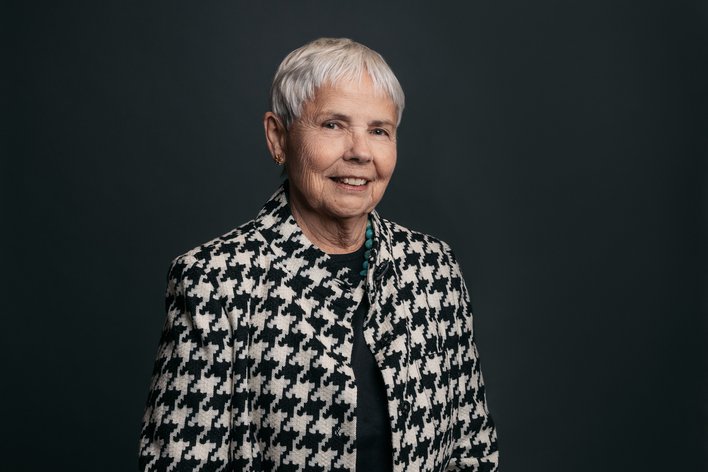Dr. Frances Harley was a pioneer in caring for children with kidney disease. After receiving her medical training in Ontario, Baltimore and Montreal, she came to Edmonton in 1970. Since there was no subspecialty in pediatric nephrology at the time in Canada, she joined a group of adult nephrologists in Edmonton and went on to co-found the Canadian Association of Paediatric Nephrologists (CAPN), the first and only national association for pediatric nephrologists in the country. She subsequently played a key role in establishing pediatric nephrology as an accredited medical specialty with the Royal College of Physicians and Surgeons of Canada.

Her career in Alberta has been a series of firsts. She was the first to start a child on peritoneal dialysis; the first to start using a cycler for peritoneal dialysis in children so they could dialyze at night and go to school during the day; the first to treat a case of hemolytic uremic syndrome (commonly known as the hamburger disease) in Alberta; and the first to send infants to a large pediatric centre in the US so they could get kidney transplants. Later, her leadership and support made infant transplantation possible in Edmonton. She helped start multicentre trials in the area of pediatric hypertension, and led one in the 1990s that showed it was safe to use short-acting nifedipine, one of the few medications that could be used in children with high blood pressure. She was instrumental in establishing the Division of Pediatric Nephrology and the first residency program at the University of Alberta, among the earliest in the country, and served twice as acting chair of the Department of Pediatrics. She has been a model for women physicians and faculty, and a tireless advocate for her patients.
In addition to this pioneering work, she played a major role in improving care for children with cystic fibrosis and asthma, and has long been a passionate advocate for people with disabilities. With her personal experience of having a daughter with cerebral palsy, she has been a strong advocate for people with disabilities, fighting to ensure they have the support they need to live independently. When she retired, over the last 13 years, she began making monthly visits to Maskwacis (formerly Hobbema) to work in a clinic caring for patients with kidney disease, diabetes and hypertention, and she has engaged in extensive public health work there.
In addition to her medical work, Dr. Harley contributes to the community wherever she can. She supports the Anne Burrows Music Foundation for Young Musicians, originated and continues to support the Indigenous Woman’s Achievement in Community Leadership Award in the Banff Centre Indigenous Leadership Program, and served on the boards for the Edmonton Food Bank and the Canadian Food Bank. She and her husband, Dr. Raul Urtasun, endowed a scholarship for Argentinian artistic creators to attend the Banff Centre.
Pediatric nephrology is not a high-profile specialty. Dr. Harley has devoted herself to it not from a desire for recognition, but from a desire to serve those in need.